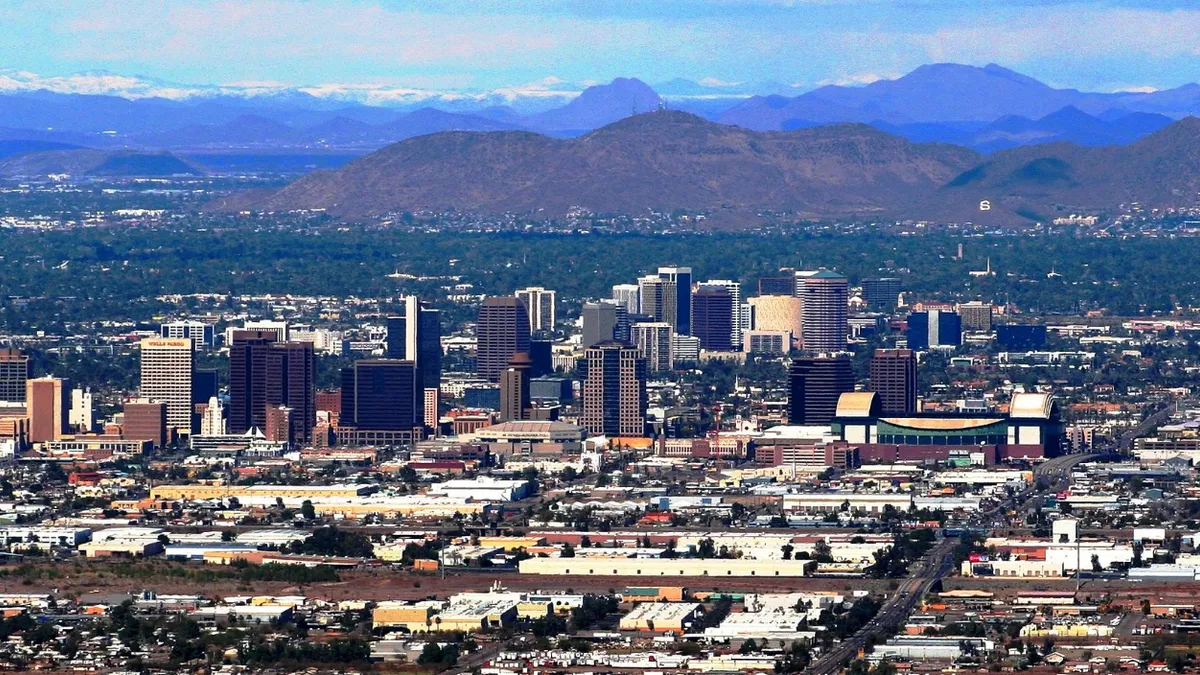Dive Brief:
- Republican candidates Robert Burns, Andy Tobin and Boyd Dunn won seats on the Arizona Corporation Commission after a rancorous election cycle.
- Burns and Tobin kept their seats on the five-member commission, while Dunn took the vacant seat left by outgoing Commissioner Bob Stump. Two seats were not up for election.
- All three Republican candidates received financial support from a group backed by Pinnacle West, the parent company of Arizona Public Service Co. The two Democratic challengers, William Mundell and Tom Chabin, were backed by SolarCity, a leading rooftop solar developer who is embroiled in a heated debate over solar rates with APS.
Dive Insight:
It was a predictable end for an unpredictable election cycle in this red state. Incumbent commissioner Robert Burns, an outspoken supporter of the solar sector, kept his seat as both SolarCity and APS poured money into supporting his bid for re-election.
Andy Tobin, who was appointed by Gov. Doug Doucey (R) earlier this year after former ACC Chairwoman Susan Bitter-Smith resigned, made a bid for a seat this year and won. His appointment was marked by concerns of a conflict of interest with the solar sector, since his son-in-law was employed by SolarCity.
Boyd Dunn filled the last vacant seat left by Bob Stump, whose term ran out this year.
Of all the candidates, Burns' bid for re-election was the most interesting. Earlier this year, he called for both utilities and solar developers to stay out of the election cycle to avoid the dark money controversy that dogged two of his colleagues in the 2014 election cycle.
But both sides failed to heed his pleas and openly backed his campaign. Most surprising was Pinnacle West's financial support, since he had voiced frustration with the company for not disclosing political contributions. Burns later subpoenaed the company for its financial records over the 2014 election cycle.
A number of critics have accused APS of funneling dark money to political groups supporting the campaigns of current regulators Doug Little and Tom Forese two years ago, but the utility has neither denied or confirmed those allegations.
This race, like the 2014 contest, was marked by a widely-watched debate over the future of rooftop solar valuation. Arizona has long captured national attention due to its heated debates over net metering — a policy that allows returns for customers selling excess energy from their rooftop solar arrays.
This year, two rate cases proposing mandatory residential demand charges and a value of solar docket set the stakes for the regulatory election. Both the rate cases and the value of solar docket, opened last year, could set precedents beyond state borders for how distributed generation is compensated and quantified.
Already staff proposals submitted to the docket are outlining avenues to transition from net metering, a highly unpopular move among the solar sector.













